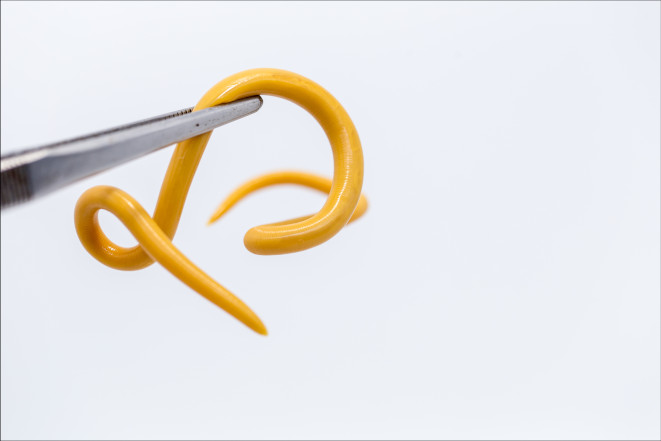With their masked faces and dexterous claws, raccoons are now a common sight in cities and suburbs. It is essential to recognize that raccoons pose potential health risks, such as the threat posed by raccoon roundworm (Baylisascaris procyonis), despite their inquisitive behaviours and endearing antics. This microscopic parasite may be tiny in size, but it can have a significant impact on human and animal health.
The stages of the Raccoon Roundworm’s life cycle are:
Raccoon roundworm is a species of parasitic nematode that infects raccoons predominantly. These tiny worms reside in the intestines of the raccoon, where they produce eggs. The raccoon then releases the eggs into the environment through its excrement. Within a few weeks of entering the environment, the embryos can become infectious.
Human Exposition and Health Effects:
When humans or other animals come into contact with raccoon excrement containing viable roundworm eggs, there is cause for concern. Ingestion or inhalation of these embryos can cause Baylisascariasis, a potentially fatal infection. The eggs can develop in the digestive tract, and the larvae can migrate to numerous organs, including the brain. This migration can result in tissue injury and inflammation, resulting in a variety of health problems.
Symptoms and consequences:
Depending on factors such as the number of ingested larvae and the organs affected, Baylisascariasis symptoms can vary considerably. Mild infections can sometimes cause flu-like symptoms, such as fever, nausea, and abdominal pain. However, more severe infections can result in more severe health complications, such as neurological issues, vision loss, and cognitive deficits. Baylisascariasis, despite being uncommon, can have severe and even life-threatening consequences.
Protection and avoidance:
Given the potential risks associated with raccoon roundworm, it is essential to take preventative measures to avoid exposure. Here are some measures you can take to safeguard yourself and your loved ones:
Avoid Direct Contact:
Use caution when cleaning up raccoon excrement or entering raccoon-inhabited areas. Use disposable gloves and a face mask, and thoroughly cleanse your hands afterward.
Keep pets away:
Raccoon roundworm can infect pets as well. Prevent creatures from coming into contact with raccoon waste and raccoon-inhabited areas.
To reduce the number of raccoons on your property, seal potential entry points to your residence, attic, and other buildings. Installing galvanized steel lattice in these areas can deter raccoons from entering.
Professional Removal:
If you suspect an infestation of raccoons on your property, you should consider hiring wildlife removal specialists. They have the knowledge and equipment to manage raccoon removal and cleanup safely and efficiently, reducing the risk of exposure to raccoon roundworm and other potential dangers.
Maintain outdoor areas free of any debris that could attract raccoons through routine cleaning. Remove garbage immediately, secure garbage cans, and eliminate potential food sources.
Conclusion:
Even though raccoon roundworm is frequently overshadowed by raccoons’ playful image, it is a serious health concern. Understanding the risks associated with raccoon roundworm and taking preventative measures are crucial for protecting your health and the health of your family and pets. You can reduce the likelihood of raccoon roundworm infection and create a safer living environment for all by practising appropriate hygiene, seeking professional assistance when necessary, and employing effective prevention strategies.
Professional, affordable, and accessible raccoon removal bowmanville are done by professional wildlife raccoon removal experts.

